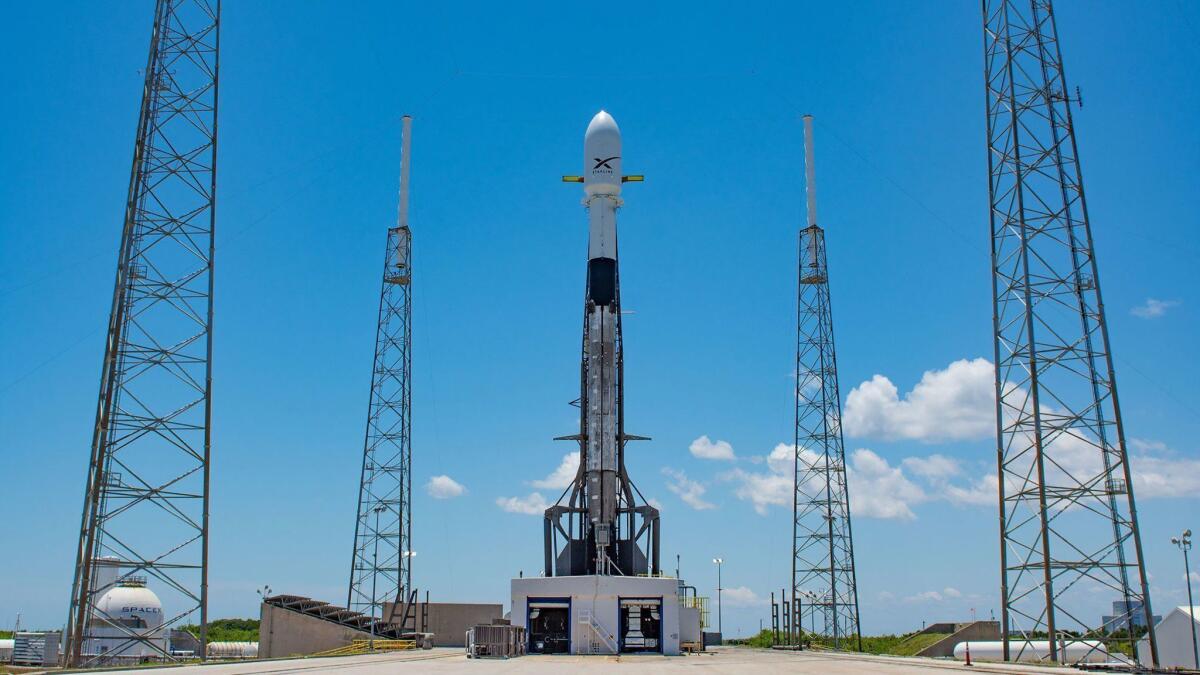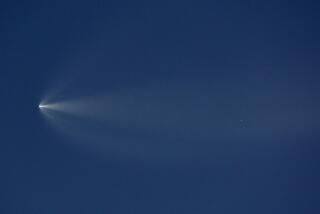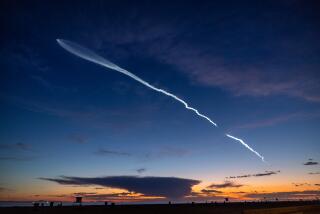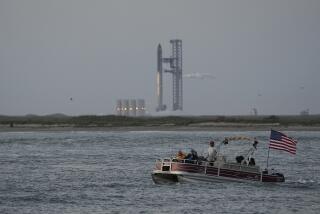SpaceX challenges Air Force awards on security satellite launches

Elon Musk-led SpaceX is formally challenging the U.S. Air Force’s decision last year to award a round of rocket development contracts to competitors, arguing that the Hawthorne company’s entire proposal was incorrectly deemed the one with “highest risk.”
In October, the Air Force awarded a combined total of about $2 billion to United Launch Alliance — a joint venture of Boeing Co. and Lockheed Martin Corp. — as well as Northrop Grumman Corp. and Jeff Bezos’ Blue Origin for development of new U.S.-produced rockets that could carry national security satellites to orbit. All three companies were set to initially receive $181 million.
A second phase of the competition will award actual national security satellite launch contracts to rocket companies. SpaceX, despite not winning one of the initial launch service agreements, is still eligible to bid, the Air Force has said.
SpaceX’s protest, which was filed last week in the U.S. Court of Federal Claims, alleges that the Air Force Space and Missile Systems Center’s evaluation and award decision was “arbitrary and capricious and contrary to law.”
The Space and Missile Systems Center did not immediately respond to a request for comment.
SpaceX said it proposed using its workhorse Falcon 9 rocket and its Falcon Heavy rocket, which has launched twice, for all national security missions scheduled prior to late 2025, which represented most of the launches. SpaceX bid its proposed Starship rocket system — which Musk intends to use for future Mars missions — for the “tiny fraction” of national security space launches set to launch no earlier than late 2025.
SpaceX claims that because Starship is still in development, the Air Force rated its entire proposal as the “highest risk” portfolio, despite the fact that ULA, Northrop Grumman and Blue Origin also bid rockets currently under development.
In its protest, SpaceX also said the Air Force’s award decisions “best served the needs of ULA” since Blue Origin and Northrop Grumman were also making rocket engines or solid-fuel rocket motors for ULA’s proposed launch vehicle, Vulcan Centaur.
A ULA spokeswoman referred questions to the Justice Department, which declined to comment, as did Blue Origin. Northrop Grumman did not immediately respond to a request for comment.
By challenging the awards decision, SpaceX said it “does not seek any advantage, but only the opportunity to compete for national security missions on a fair and level playing field.” The company said it was not challenging the second phase of the competition.
SpaceX is seeking that the court prohibit any further government investment or company performance under the initial launch service agreements; that the proposals for Phase One be reevaluated “in accordance with the stated evaluation criteria and on an equal basis”; and that a new award decision be made, according to the bid protest.
Musk described the proposal differently during a December meeting with acting Defense Secretary Patrick Shanahan. He said then SpaceX’s proposal for the Air Force launch service agreement “missed the mark,” according to a summary of the meeting by a member of Shanahan’s staff that was included in a Defense Department office of inspector general report on alleged unethical conduct by Shanahan.
This is not the first time Musk has challenged national security launch contracts. In 2014, Musk filed a lawsuit against the Air Force to challenge a so-called block-buy contract the military gave to ULA, though he later dropped the suit after the service agreed to open more launches to competition.
Currently, SpaceX and ULA are the only companies certified to carry sensitive spy satellites to orbit.







